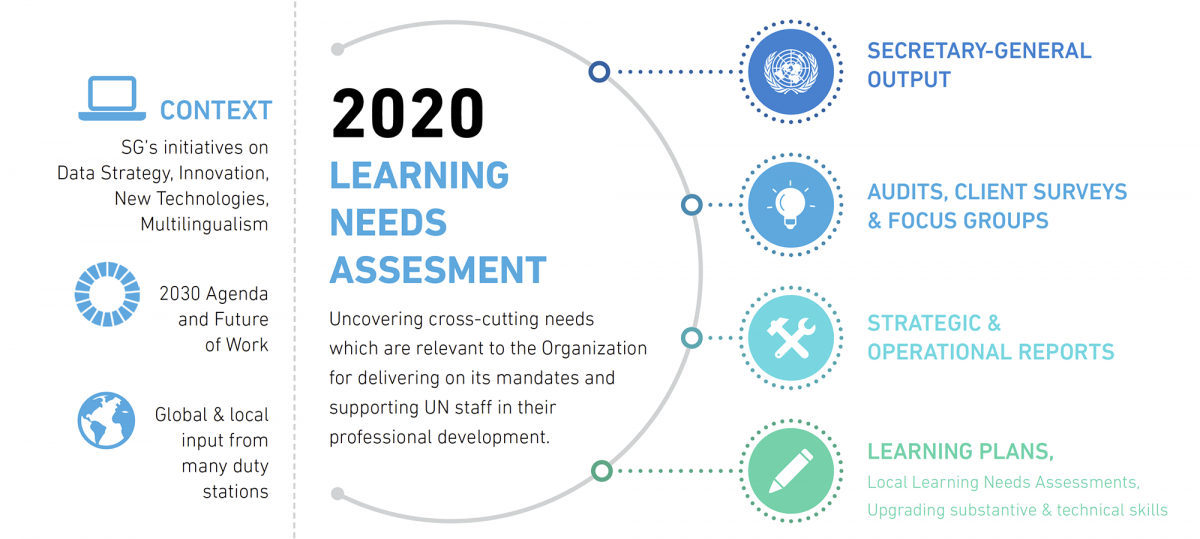|
|

OHR's Strategic Workforce Planning Section has detected three skills that will affect the future of the Organization:
- Data Analytics: The goal of the Secretary-General's Data Strategy is to invest in data and analytics capabilities to deliver value and solve real problems for our stakeholders, engaging everyone in data-driven work as appropriate to the role. Every staff member is expected to have a data-related learning goal.
- Partnerships: The broad coalition for advancing the 2030 Agenda requires collaborative skills for working closely with Member States, and the private sector, civil society, NGOs, and other non-state actors, as well as with System entities, in efficient coordination.
- Innovation: Skills that empower individuals to become innovative in their day-to-day activities. The ability to come up with/identify new solutions to existing technology, processes, behaviours, and mindsets.
- Monitoring & Evaluation: Monitoring is a continuing function that uses systematic collection of data on specified indicators to provide management and the main stakeholders of an ongoing development intervention with indications of the extent of progress and achievement of objectives and progress in the use of allocated funds. Evaluation is the systematic and objective assessment of an ongoing or completed project, programme or policy, its design, implementation and results.
- Knowledge Management: The process of creating, sharing, using and managing the knowledge and information of an organization.
- Gender Mainstreaming: Ensuring that gender perspectives and attention to the goal of gender equality are central to all activities - policy development, research, advocacy/ dialogue, legislation, resource allocation, and planning, implementation and monitoring of programmes and projects.
ORGANIZATIONAL LEARNING NEEDS
The Global Learning Needs Assessment (LNA) is the second comprehensive review of learning needs at an organizational level and builds on the multi-dimensional approach used in 2017 to bring together self-reported staff learning needs with the priorities and gaps at the organizational level.
This assessment reviewed over 400 data sources, twice as many as the previous assessment. It supports the Secretary-General’s Data Strategy which presents that we must “start with data action that adds immediate value for our organization and the people we serve.”

DOWNLOAD THE LNA
|